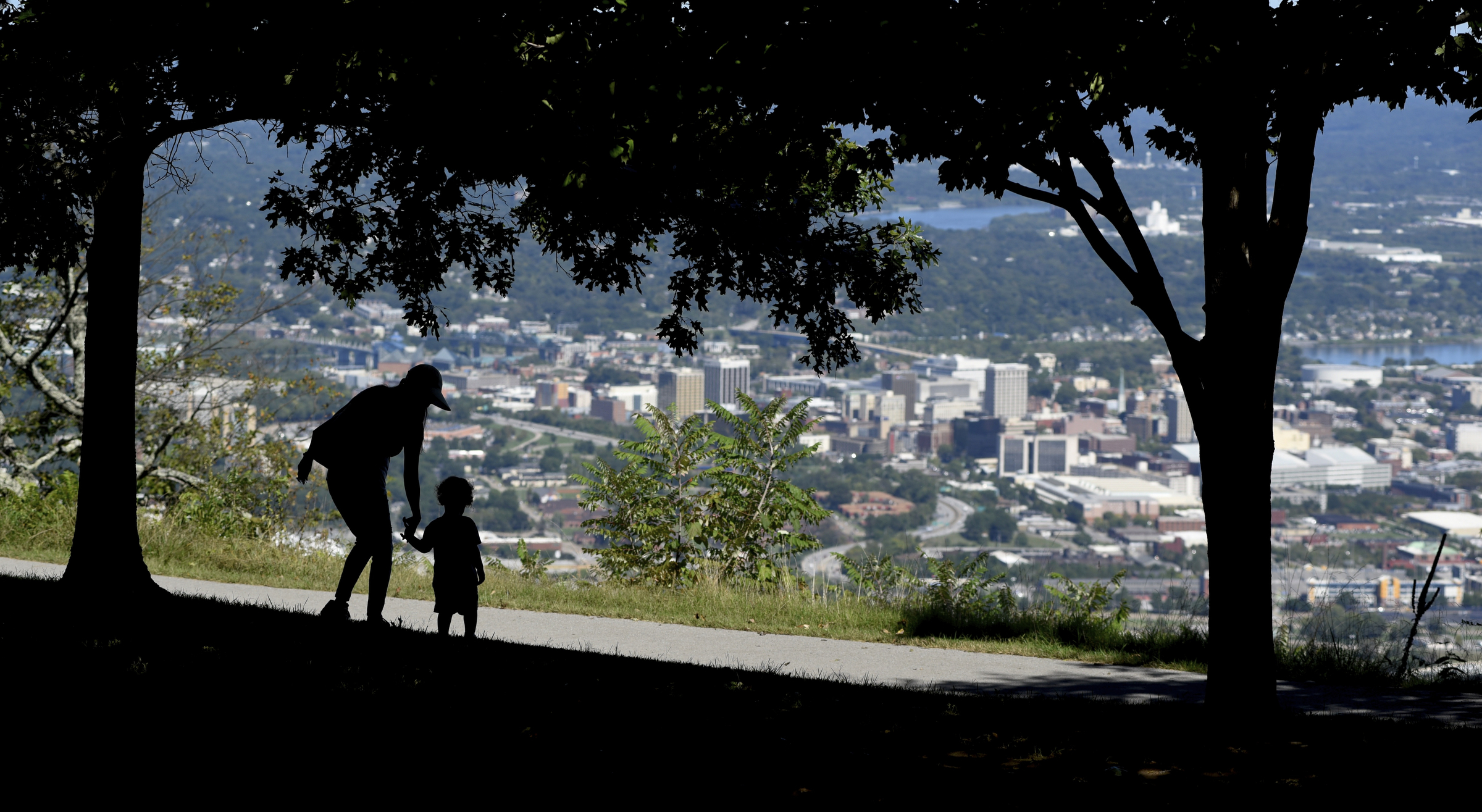Tennessee's Hall Tax on interest and dividends is on its way out, and - love it or hate it - it provides a glimpse of where the investment class lives.
It turns out that people who get a lot of money from investments in the Chattanooga area mainly live at altitude.
There's an old saying that the people who own Chattanooga live on Lookout Mountain while the people who run it live on Signal Mountain.
And, sure enough, Lookout Mountain ranks highest among area communities for per-capita Hall Tax revenue.
The upscale residential enclave got $707,773 in Hall Tax revenue in 2014, when its estimated population was 1,893 - which translates to $374 in Hall Tax revenue per person.
Signal Mountain actually outstrips Lookout Mountain overall in Hall Tax revenue, with Signal Mountain getting a six-year average of $617,153 per year, compared to $603,840 for Lookout Mountain.
But with an estimated 2014 population of 8,519, Signal Mountain had per capita Hall Tax revenue of just $77 that year.
Tennessee lawmakers this spring approved a six-year phase-out of the state's 6 percent Hall Income Tax on interest and dividend income from investments.
Advocates for lower taxes hailed the measure, calling it the end of Tennessee's only income tax. Conservative proponents have chipped away at the levy for years and complete elimination has been pushed for by such groups as Americans for Prosperity-Tennessee.
Meanwhile, a number of city and county government leaders bemoaned the loss of revenue. The Hall Tax, which was enacted in 1929, raises about $300 million annually for state and local governments - with cities and counties taking three-fifths of the income.
Some 200,000 Tennesseans pay Hall Tax, or about 3 percent of the state's roughly 6.5 million residents.
The city of Chattanooga gets the most Hall Tax revenue locally, with $3,739,624 received in 2014. With an estimated population of 173,778 that year, that comes to $21.52 per person.
Meanwhile, at the other end of the spectrum are such places as Grundy County, which only got $6,960 in Hall Tax revenue in 2015, when its population was estimated at 13,441. That translates to about 52 cents per person.
What's next for cities?
The good news for governments that don't get much Hall Tax revenue is they won't miss it. However, local governments that rely on the levy need to figure out how to replace Hall Tax revenue or cut expenses.
"As a city, we rely on revenue from many different sources, and as revenue dollars get phased out, we have to find new avenues," Chattanooga Mayor Andy Berke, who opposed the Hall Tax phaseout, told the Times Free Press.
Hall Tax revenue accounts for about 20 percent of the income for the town of Lookout Mountain, Tenn.
"We're not happy about Hall Tax [ending]," Town Consultant Dwight Montague said. "We don't have much in the way of sales tax revenue; we've got Hall Tax and we've got property tax. So we either have to cut services or increase property tax."
Cities and counties will feel the cut right away, Montague said, since the levy gets cut this fiscal year from 6 percent to 5 percent, resulting in up to a $28 million reduction for the state and about $14 million for local governments.
"It's effective Jan. 1st," he said. "So for the calendar year 2016, it's 5 percent."
Signal Mountain officials say the Hall tax came to about 15 percent of their revenue in 2015.
Mayor Dick Gee said despite the time the council has to make preparations, state lawmakers' decision "will certainly make a large difference in our budget. We'll have to develop a plan to replace that income to maintain the level of service we provide today."
Montague said the legislature considered a variety of options for the Hall Tax - including a plan to let local governments keep it - before it decided to phase it out.
"In this go round, when they brought up Hall Tax, there were something like six to eight different proposals," Montague said. "One proposal said a municipality could have a referendum and do a local Hall Tax, basically, a local income tax. They threw all that out and just came up with the simple version of drop it."
'Property tax much more fair'
The Tennessee city that gets the most Hall Tax per capita is Belle Meade, a Nashville suburb that's one of the wealthiest places in the United States. Its residents include Al Gore, the former vice president and senator from Tennessee.
The Hall Tax makes up between 40 and 50 percent of Belle Meade's annual revenue, said Bell Meade's City Manager Beth Reardon.
"We've been preparing for this, I've worked here for 26 years, and probably for 15 or more of those years, there's always been the threat the Hall Tax is going away," Reardon said.
But it's never been a reliable form of revenue, she said.
"Honestly, we would much rather have a revenue that we know what it's going to be each year, because every year we have to wait and see what our Hall Tax revenue is going to be. If [Belle Meade residents who invest] have good years or bad years, we don't know it," she said. "If we have this amount transferred over to a property tax, man that's going to make my budget process a whole lot easier."
"A property tax is a much more fair, because everybody pays that property tax," Reardon said. "Whereas right now, almost 50 percent of our city revenue is from a select, few individuals who happen to have that kind of income."
House Finance Committee Chairman Charles Sargent, R-Franklin, said abolishing the tax would help Tennesseans and encourage more people and companies to move to the state.
Sargent says that since Republicans took control of the state of Tennessee's government, there has been the elimination of the state's inheritance tax, a half penny cut in the state's sales tax on food, and reductions in the Hall tax. With the planned six-year phase out of the Hall in 2022, Sargent said, the total cumulative cuts will have amounted to almost $1.97 billion.
Chattanooga Times Free Press staff writer Andy Sher contributed to this report.

